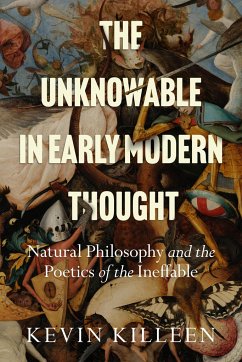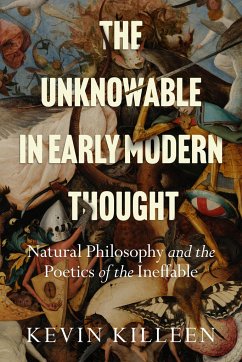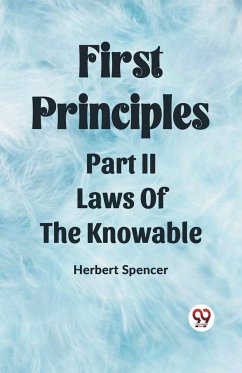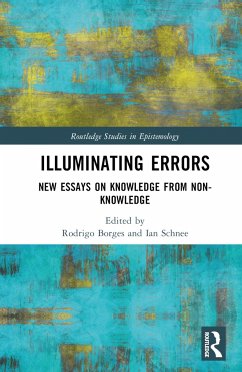
First Principles Part I The Unknowable

PAYBACK Punkte
6 °P sammeln!
"First Principles: Part I The Unknowable" is an ancient Philosophy, Science literature book written by Herbert Spencer. As part of Spencer's philosophy series, this classic philosophical treatise examines the fundamental principles underlying human understanding. In this book, Spencer meticulously examines the scientific method and natural philosophy, inviting readers to ponder the mysteries of existence and the limits of human cognition. Through his rigorous examination, Spencer delves into the complexities of epistemology and the nature of knowledge, challenging readers to confront the inher...
"First Principles: Part I The Unknowable" is an ancient Philosophy, Science literature book written by Herbert Spencer. As part of Spencer's philosophy series, this classic philosophical treatise examines the fundamental principles underlying human understanding. In this book, Spencer meticulously examines the scientific method and natural philosophy, inviting readers to ponder the mysteries of existence and the limits of human cognition. Through his rigorous examination, Spencer delves into the complexities of epistemology and the nature of knowledge, challenging readers to confront the inherent uncertainties of the universe. As a seminal work in the realm of philosophy, "First Principles: Part I: The Unknowable" stands as a testament to Spencer's intellectual prowess and enduring influence. It is a must-read for anyone interested in engaging with classic philosophy texts and expanding their understanding of the philosophical tradition. For readers seeking to delve into the complexities of metaphysical inquiry and epistemological exploration, "First Principles: Part I: The Unknowable" is an essential addition to their collection, offering timeless insights into the nature of reality and human understanding."












